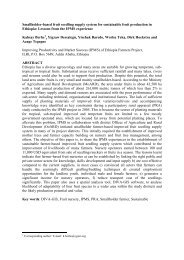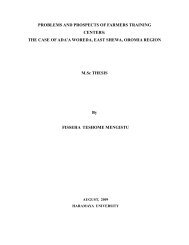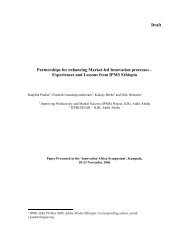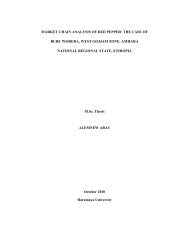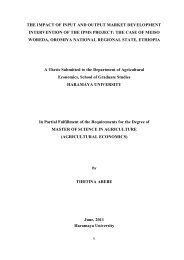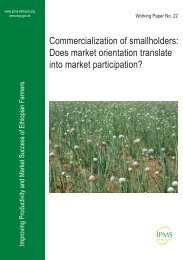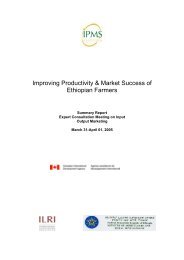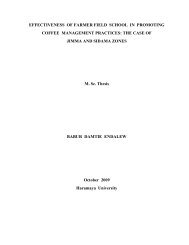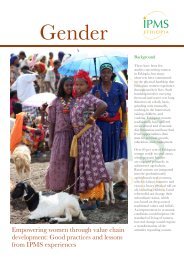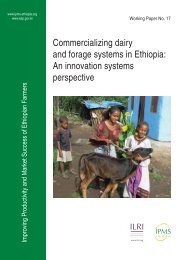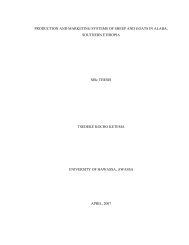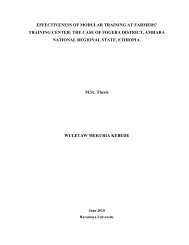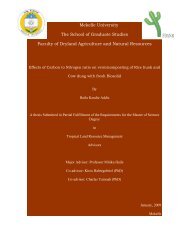Honeybee Production and Marketing Systems, Constraints - IPMS ...
Honeybee Production and Marketing Systems, Constraints - IPMS ...
Honeybee Production and Marketing Systems, Constraints - IPMS ...
- No tags were found...
You also want an ePaper? Increase the reach of your titles
YUMPU automatically turns print PDFs into web optimized ePapers that Google loves.
4.1.7 Beekeeping extension serviceThe survey work illustrated that 80% had the chance of getting beekeeping extension servicedelivery. This reflects the need for developing concrete <strong>and</strong> sound beekeeping extension systemin the future for sustainable beekeeping development in Bure district. According to this study,63.3% of beekeepers received improved bee hives <strong>and</strong> 36.7% did not receive. Of the samplerespondents, 62.5% were trained <strong>and</strong> 37.5 % were not trained. The majority of these beekeepersreported that they can not transfer the colony from local to frame hives, <strong>and</strong> even those who cantransfer were unable to harvest the honey. This might hamper beekeeping technology adoptionprocess. Therefore, training must go side by side to beekeeping technology <strong>and</strong> input provision<strong>and</strong> focus more on practical training or demonstration. Among those who are members of theextension service, 53.1 % are extension package participants, followed by follower farmers(26%), contact farmers (17.7%) <strong>and</strong> farmers with no position (5.2%).According to the results of this survey, only 38.3% of the interviewed households had access tofield day on bee keeping. From this it can be noted that informal knowledge flow plays vital rolefor sharing of experiences among beekeepers that in turn build up indigenous knowledge likeswarm control, queen rearing <strong>and</strong> pest <strong>and</strong> disease control. Majority of beekeeping activity isgeared by self-owned form of indigenous knowledge. This again implies the essentiality oftaking indigenous beekeeping knowledge into consideration in each <strong>and</strong> every modernbeekeeping development intervention.Table 7: Extension participants of respondents on beekeeping in percentTotal sample (n=120)Position %Extension package participant 53.1Follower farmer 26.0Contact farmer 17.7No position 5.2Total 10040



